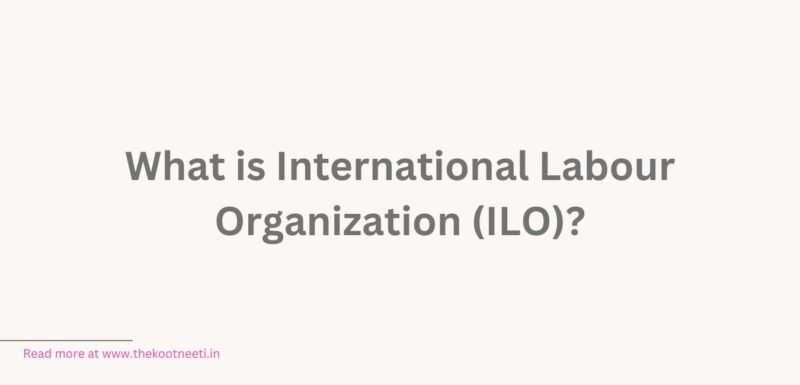International Labour Organization

The International Labour Organization (ILO) is a United Nations agency that promotes decent work and protects the rights of workers around the world. The ILO was established in 1919, and it has member countries from all regions of the world. The organization’s main objectives are to promote rights at work, encourage decent employment opportunities, and enhance social protection.
The ILO has a number of key functions, including:
- Setting international labour standards: The ILO develops and promotes international labour standards that outline the rights of workers and the responsibilities of employers. These standards are based on conventions and recommendations that are adopted by the organization’s member countries.
- Providing technical assistance and capacity building: The ILO provides assistance and training to member countries to help them implement and enforce labour standards and improve working conditions.
- Conducting research and analysis: The ILO conducts research and analysis on labour-related issues and produces reports and publications on topics such as child labour, forced labour, and labour migration.
- Promoting international cooperation: The ILO works with member countries and other organizations to promote cooperation and dialogue on labour-related issues.
Example of labour standards created by ILO
The International Labour Organization (ILO) has developed and promoted a number of international labour standards that outline the rights of workers and the responsibilities of employers. Here are a few examples of these standards:
- The Forced Labour Convention, 1930 (No. 29): This convention prohibits the use of forced labour and requires member countries to take steps to eliminate it. Forced labour is defined as work or service that is exacted from any person under the threat of a penalty and for which the person has not offered himself or herself voluntarily.
- The Equal Remuneration Convention, 1951 (No. 100): This convention requires member countries to take measures to ensure that men and women receive equal pay for work of equal value.
- The Worst Forms of Child Labour Convention, 1999 (No. 182): This convention prohibits the worst forms of child labour, including slavery, forced labour, and child trafficking, and requires member countries to take measures to eliminate these practices.
- The Occupational Safety and Health Convention, 1981 (No. 155): This convention requires member countries to establish and maintain systems to protect the safety and health of workers in the workplace.
These are just a few examples of the many international labour standards that have been developed by the ILO. The organization has also developed a number of other standards that cover a wide range of labour-related issues, including working hours, freedom of association, and discrimination.
ILO’s capacity-building programs
The International Labour Organization (ILO) provides a range of technical assistance and capacity-building programs to its member countries to help them implement and enforce labour standards and improve working conditions. Here are a few examples of ILO capacity-building programs:
- The Better Work Program: This program provides technical assistance and training to member countries to help them improve working conditions in the garment and footwear sector. The program focuses on areas such as labour rights, health and safety, and sustainable development.
- The Skills for Employment and Rural Development Program: This program provides training and technical assistance to member countries to help them improve the skills of their workforce and increase employment opportunities in rural areas. The program focuses on sectors such as agriculture, forestry, and tourism.
- The ILO Academy on Social and Solidarity Economy: This program provides training and technical assistance to member countries to help them develop and support social and solidarity economy enterprises. These enterprises are based on principles of solidarity, social responsibility, and sustainability, and they can contribute to economic development and social inclusion.
ILO projects in India
The International Labour Organization (ILO) has a number of projects and programs in India that aim to promote decent work and protect the rights of workers in the country. Some examples of ILO-supported projects in India include:
- The India Skills Development Project: This project provides technical assistance and training to help improve the skills of India’s workforce and increase employment opportunities in the country. The project focuses on sectors such as construction, textiles, and retail.
- The Better Work India Program: This program is part of the ILO’s global Better Work Program, and it provides technical assistance and training to improve working conditions in the garment and footwear sector in India. The program focuses on areas such as labour rights, health and safety, and sustainable development.
- The ILO’s India Decent Work Country Program: This program is a multi-year initiative that aims to promote decent work and protect the rights of workers in India. The program focuses on issues such as labour rights, occupational safety and health, and social protection.


















